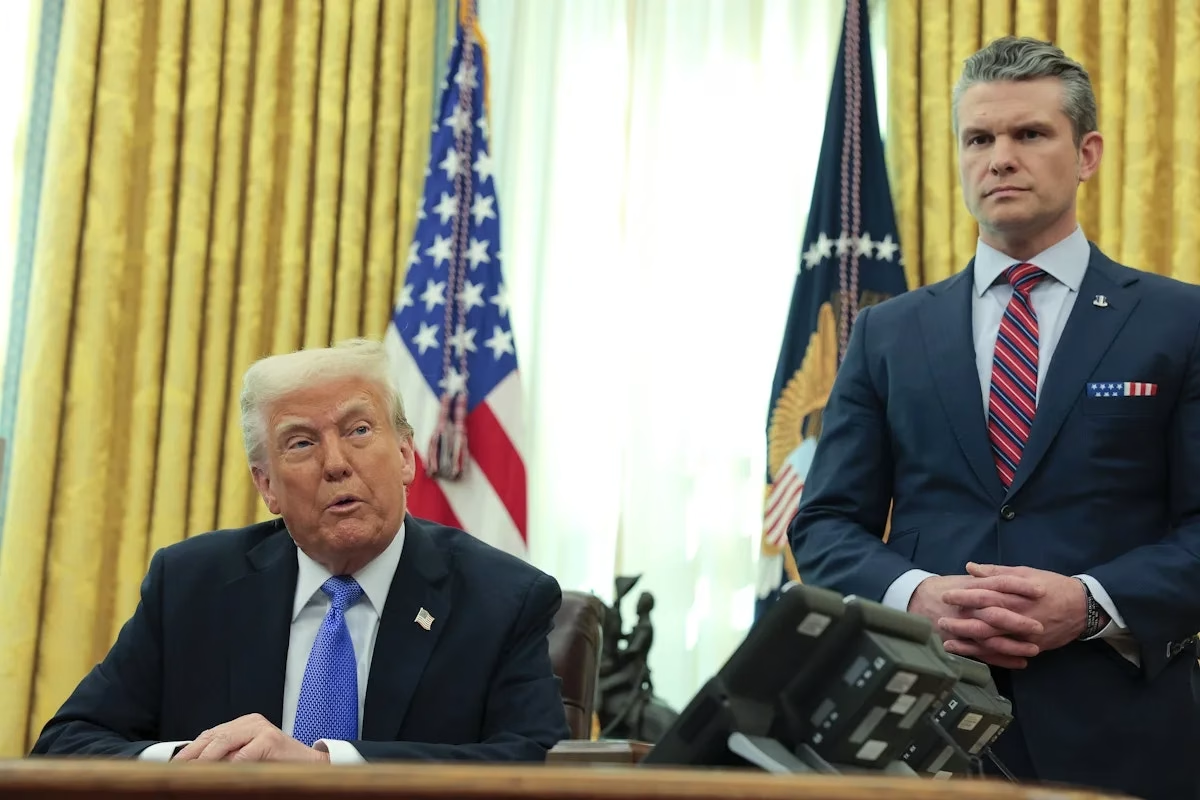By Mary Jones, Tony Bruce and Ben Emos | Tuesday, November 5, 2024 | 6 min read
As Election Day approaches, one pressing question looms: What would a second Trump presidency mean for America? For many, his first term was marked by turmoil, crisis mismanagement, and record-low public approval. Yet, recent polls reveal that some voters are looking back on his presidency with newfound favor, perhaps with more nostalgia than they felt at the time. Here, we take a closer look at Trump’s record, contrasting the realities of his administration with today’s nostalgic reinterpretations.
During his time in office, Trump rarely held majority support, with approval ratings averaging around 41% and dipping as low as 34% by the time he left in January 2021. His administration faced constant public dissatisfaction. Yet, in retrospect, some Americans now view his presidency more favorably, with recent polls showing a “past-tense” approval of 48%. This upward shift—despite the contentious nature of his term—may illustrate a phenomenon called “political nostalgia.” Amid today’s economic difficulties and social divides, some people may look back on his presidency with a sense of longing, recalling it more positively than they felt at the time. In fact, with strong support from white voters, Trump could potentially secure a path to becoming the 47th president.
A Presidency Marked by Crisis: COVID-19 and Economic Collapse
Trump’s mishandling of the COVID-19 pandemic is widely regarded as one of the most significant failures of his administration. Rejecting scientific recommendations, downplaying the virus’s threat, and spreading misinformation about treatments, he presided over one of the world’s worst death tolls and a severe economic downturn. His suggestion that disinfectants could cure the virus shattered public confidence, underscoring his administration’s inadequacies in managing the crisis.
Alongside his pandemic response, Trump failed to deliver on some of his core campaign promises. The border wall—a cornerstone of his 2016 platform—remains unfinished. His ambitious infrastructure plans, often touted but never realized, fizzled without significant progress. His healthcare reform promises stalled, and his policies increasingly favored corporations and wealthy interests over the working class he had pledged to support. These unfulfilled promises left many Americans frustrated, feeling that the reality of Trump’s leadership did not match his populist rhetoric.
The Most Scandal-Ridden Administration Since Nixon
Trump’s presidency was beset by scandals and legal troubles, echoing the ethical failings of the Nixon era. Over 20 of his aides faced criminal charges, with many convicted or imprisoned, and multiple legal battles still loom over his business practices and campaign conduct. From obstruction to fraud, the legal clouds over Trump’s circle exposed an administration plagued by ethics violations and, in many cases, outright criminality.
Such scandals are not merely partisan talking points; they are well-documented and have resulted in convictions, fines, and ongoing investigations. Trump’s extensive record of legal challenges stands as a stark reminder of the potential instability and controversy that could define a second term.
Trump’s administration was repeatedly marred by allegations of corruption and conflicts of interest. From using government funds to benefit his own businesses to pressuring foreign governments for political favors, Trump blurred the line between public duty and personal gain. His behavior included calls to prosecute political opponents, the implementation of a family-separation policy at the border, and his mixed messages regarding white supremacy after the violent events in Charlottesville. These incidents highlighted Trump’s tendency to use power divisively, further alienating a wide spectrum of Americans.
Importantly, these critiques did not solely come from the political left. Many prominent Republicans voiced concerns about Trump’s suitability for office. Well-known conservatives warned he was unfit, divisive, and “wholly opposed to actual public service.” Their warnings were not about partisanship; they were about character, a trait Trump’s opponents across the political spectrum questioned. Labels like “chaos candidate,” “pathological liar,” and “populist authoritarian narcissist” came from the mouths of Republicans who knew Trump closely. Even his running mate—once a staunch ally—had once called himself “never Trump.”
January 6 and the Erosion of Democratic Norms
Perhaps the most significant consequence of Trump’s leadership came with his attempts to subvert the results of the 2020 election. His baseless claims of voter fraud incited the January 6 Capitol insurrection—a violent attempt to overturn the election that resulted in multiple deaths, hundreds of arrests, and an unprecedented assault on American democracy. Trump’s role in promoting and defending the insurrection led to criminal charges against him and his associates. More importantly, it raised fears about his willingness to undermine democratic norms to maintain power.
Trump’s actions on January 6 and in the aftermath brought bipartisan condemnation, drawing criticism even from many Republicans who had previously supported him. His conduct left many Americans questioning his respect for democracy and his commitment to a peaceful transfer of power. No other president in modern American history has sparked such a crisis in governance, eroding trust in the democratic process itself.
Bipartisan Warning Against Reelecting Trump
The opposition to Trump’s return to the White House is unusually broad and inclusive, uniting figures across the ideological spectrum. This coalition, including prominent Republicans, Democrats, and independent voters, warns that a second Trump term could repeat the chaos, ethical violations, and abuses of power that defined his first. They argue that reelecting Trump is akin to selecting an anti-vaxxer to oversee public health policy—an analogy that rings especially relevant given Trump’s recent embrace of anti-vaccine advocate RFK Jr. for a health oversight role.
These bipartisan voices argue that hiring Trump again would risk bringing back the instability, conflicts of interest, and divisive rhetoric that marked his first term. Their message is not based solely on partisan interests but on the documented impact of Trump’s leadership and his track record as president.
This election asks voters to consider more than just the immediate issues at stake; it asks them to remember the real challenges and controversies of Trump’s presidency. While nostalgia can be a powerful influence, it’s critical to weigh the documented actions and consequences of his first term. The issues that plagued his administration—public disapproval, policy failures, ethical violations, and threats to democratic norms—are not distant memories but lessons to consider before casting a vote.
As Americans prepare to make this crucial decision, they face a question not just of preference but of precedent. Will the nation choose to revisit a troubled past, or will it choose a future defined by stability, ethical governance, and respect for democratic principles?
Copyright 2024 FN, NewsRoom.





